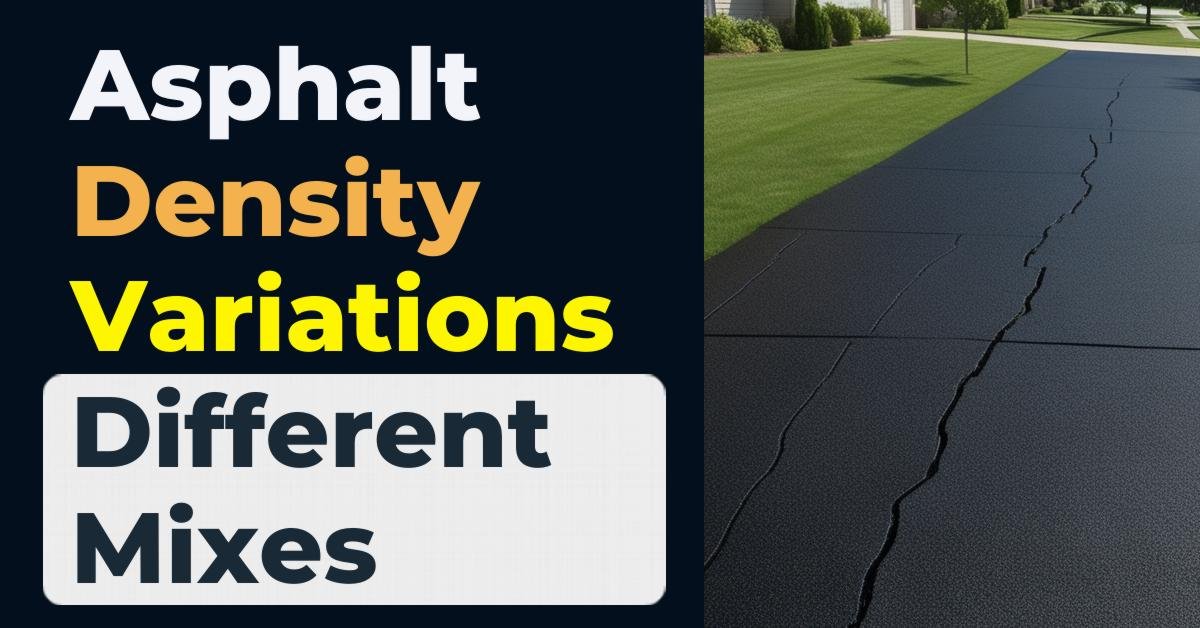Asphalt density is one of the most critical factors that determine the durability, performance, and longevity of an asphalt project. Whether you’re working on a driveway, parking lot, or highway, the type of asphalt mix you choose plays a significant role in ensuring your project’s success. This post will explain why different asphalt densities matter and how the right mix can prevent costly mistakes.
What Is Asphalt Density?
Asphalt density refers to the compacted weight of asphalt per unit volume. It’s usually measured in pounds per cubic foot (PCF) or kilograms per cubic meter (kg/m³). The density of asphalt can affect its durability, permeability, and ability to withstand various loads, which is why selecting the right mix for your project is crucial.
Why Do Different Asphalt Mixes Have Different Densities?
Not all asphalt is created equal. Various factors affect asphalt density, including:
- Aggregate size and composition: Larger aggregates result in lower-density mixes, while finer aggregates lead to denser asphalt.
- Asphalt binder content: The amount of asphalt binder (the liquid that holds the aggregate together) affects how compact the mix becomes.
- Temperature during compaction: Higher temperatures lead to better compaction, resulting in a denser final product.
These variations matter because they determine the load-bearing capacity, durability, and weather resistance of the surface.
Common Asphalt Mixes and Their Densities
Here are the most commonly used asphalt mixes and their typical density ranges:
| Asphalt Mix Type | Density (lbs/ft³) | Application |
|---|---|---|
| Dense-Graded Asphalt | 140-145 | Highways, heavy traffic areas |
| Porous Asphalt | 110-130 | Parking lots, residential areas (allows water flow) |
| Stone Matrix Asphalt | 150-160 | High-stress areas, airports |
| Hot Mix Asphalt (HMA) | 145-155 | Roads, highways |
| Warm Mix Asphalt (WMA) | 135-145 | Similar to HMA but with lower production temps |
How Density Affects Project Performance
- Load-bearing capacity: Denser asphalt mixes can support heavier loads, making them ideal for highways, airports, and areas with frequent heavy vehicle traffic. Choosing a less dense mix could result in cracks or potholes under heavy use.
- Durability: High-density asphalt is less prone to deformation and cracking, especially under extreme weather conditions. Projects in colder climates should use mixes with higher density to resist freeze-thaw cycles.
- Water drainage: Porous asphalt, with a lower density, is designed for areas that require water drainage, like parking lots. However, using this type in a high-traffic area could lead to surface damage.
Practical Example: Choosing the Right Mix for Your Project
Let’s say you’re paving a commercial parking lot. You might consider porous asphalt because of its ability to allow water to drain through, preventing puddles and reducing wear. However, if the parking lot will experience heavy truck traffic, a dense-graded asphalt mix might be more appropriate for long-term durability, even if it doesn’t offer the same drainage benefits.
Selecting the wrong mix can lead to premature failures, requiring costly repairs and causing inconvenience.
Conclusion: Why Asphalt Mixes Matter
Choosing the right asphalt density is critical for the success of any asphalt project. High-density mixes provide better durability and load-bearing capacity, while lower-density mixes may be better suited for areas that require good water drainage. Understanding these variations ensures your project withstands traffic, weather, and time, ultimately saving you money and preventing future issues.
